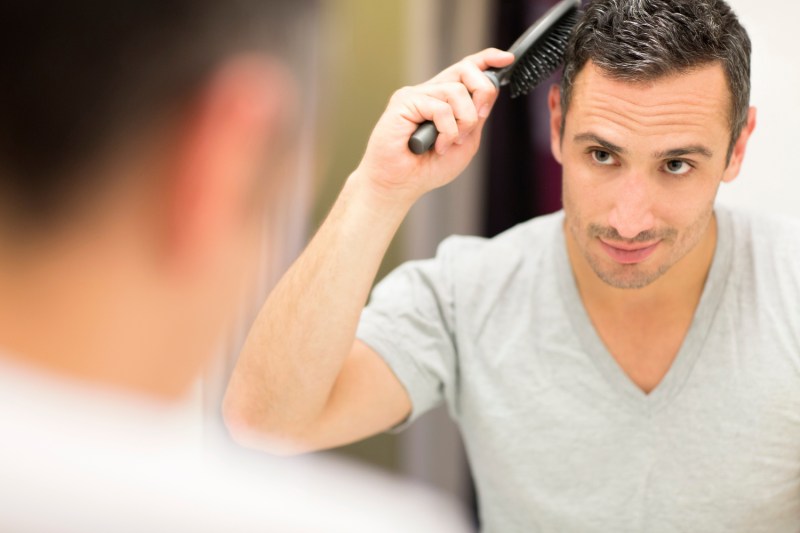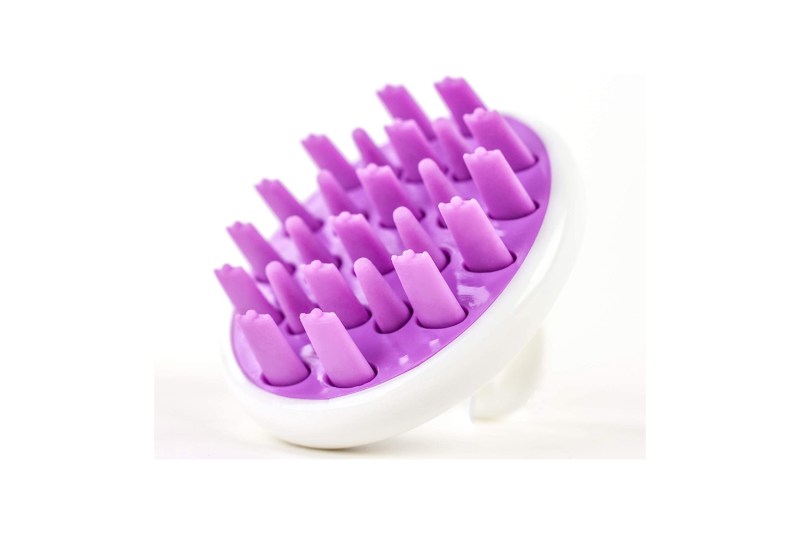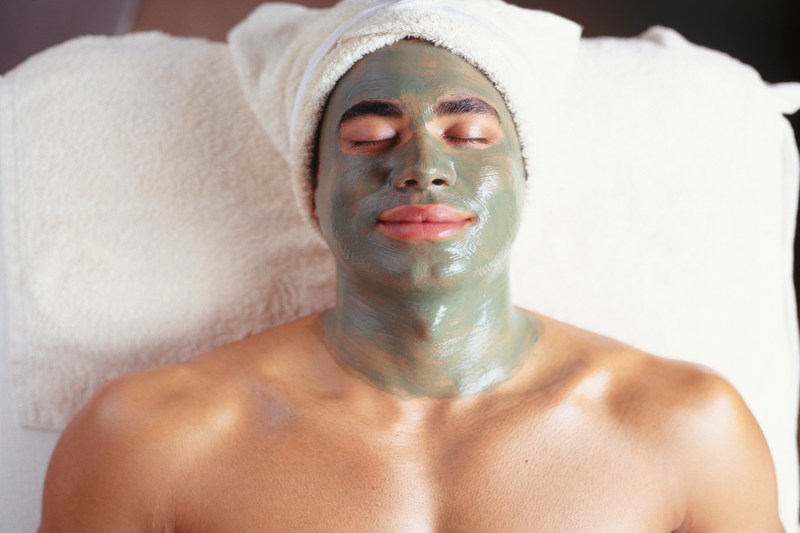
When they say “out of sight, out of mind,” they are NOT talking about your scalp! Just because you may not be able to see the skin under your hair doesn’t mean it isn’t there. Scalp care is just as important as the rest of your skincare routine if you want to maintain healthy, happy hair throughout your lifetime. Everyone has at least heard of hair oils, but here’s what else you need to know to keep a healthy scalp.
Hair, obviously, starts at the root. Think of your hair like a house plant: it can look healthy above ground, but if the roots are wilted and broken underneath, that plant will soon start to die off. Adding hormones or otherwise taking care of the roots will grow them back stronger and sturdier — and your hair roots are no different.
You could be shampooing your brains out, but if your haircare doesn’t extend to your scalp, you just aren’t doing it right. Why is scalp care so important? Your scalp is a surprisingly delicate area, containing millions of sweat glands and hair follicles. These micro-orifices are easily irritated, especially under the wrong conditions.
If your head ever gets itchy while you’re wearing a hat, it’s because the hair follicles on your head are becoming displaced, and sweat is causing irritation. Proper scalp care gives your follicles, and the hair roots just below them, more flexibility and durability. Beyond just wearing a hat, prolonged mistreatment of your scalp causes dead skin cells to block your hair follicles. Over time obstructed or broken follicles will stop producing hair, creating bald spots.
Your hair protects the scalp from all but the worst sunburns but isn’t a foolproof defender against sun damage generally. If you spend a lot of time in the sun, particularly in the summer or in an especially dry climate, your scalp will begin to dry out over time. This leads to redness, itchiness, or even chronic dandruff.
Tips for a healthier scalp
First thing is first: you need to determine what type of scalp you have. Much like the skin on your face, your scalp can be dry, oily, sensitive, damaged, or a combination of these. Figuring out what products work best for your skin is THE key to having a healthy scalp.
Once you determine your skin type, you want to make sure you’re using the right shampoo. Try a paraben- and sulfate-free shampoo with no artificial colors or scents, as these harsh chemicals strip the scalp of natural oils that are essential for healthy hair.

Scalp massagers don’t just feel good, they also help exfoliate and deep clean all the right places. Use one of these while shampooing your head to ensure you get rid of all the dead skin cells trapped in your hair. Even if you don’t have dandruff or if your scalp isn’t particularly dry, these affordable tools work wonders.
How often should you wash your hair?
How often you wash your hair really depends on a multitude of factors. Remember when you figured out what type of scalp you have? That plays a big part in answering this question for yourself. If your scalp is excessively oily, you’ll want to wash it more often than if it is on the dryer side. If you do have a dry scalp, avoid washing your hair daily. Once every three days (or twice a week) should keep your hair clean while giving your scalp time to recover and reproduce some of its natural oils.
Your location also plays a role in how often you should wash your hair. If you live in a large city with lots of pollution, like Los Angeles, for example, you will want to wash your hair more often. Air pollution causes bacteria buildup on your scalp that leads to itchiness, blocked hair follicles, and in severe cases, infection.
Every other day tends to be the general rule of thumb for people looking to maintain a healthy scalp and hydrated hair.

How to care for an unhealthy scalp
Hair oils are the first thing you should grab if you’re looking to generally improve the quality of your scalp. Most hair oils work as a mask if they’re applied 15-20 minutes before showering, and this is the recommended application process for already damaged scalps.
Look for a hair oil that is rich in antioxidants, vitamins, and fatty acids. These ingredients will keep your scalp and your hair hydrated and healthy for longer.
If your scalp needs a little more TLC than hair oils can provide, check if your local spa has a “scalp facial” on the menu. These trendy new treatments use natural ingredients to strip the scalp of any dirt, oils, sweat, or products that may be buried deep in there. These detoxes are rather intense and can be harsh on your skin, so utilize them sparingly. One or a handful of these treatments, along with general maintenance as described above, should do the trick to reviving a scalp that has seen better days.
Remember: scalp care is a marathon, not a sprint. It’s going to take time for an unhealthy scalp to recover from damage, but consistency in your routine will generate smooth results.



